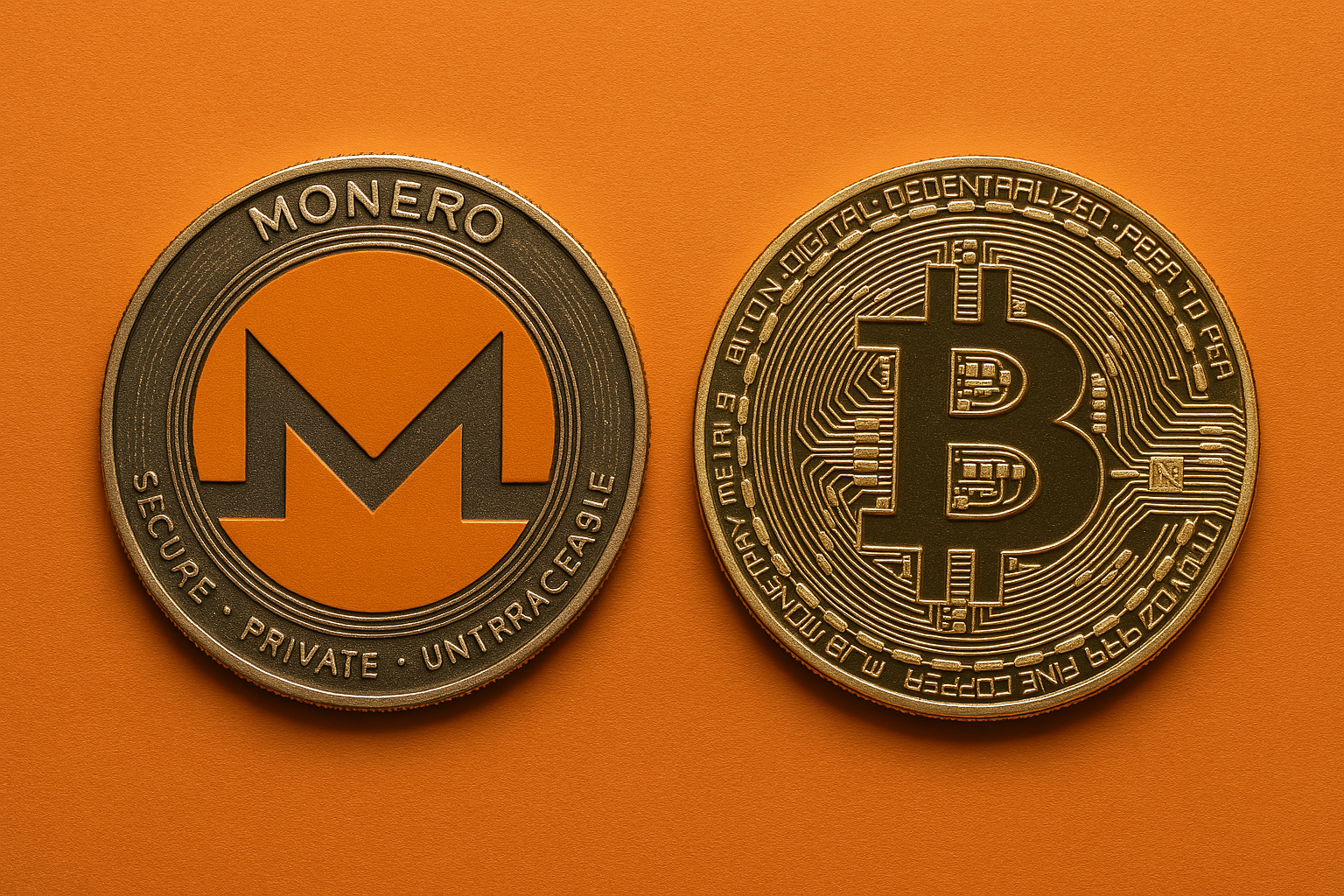Bitcoin has long dominated the cryptocurrency market as the first and most widely adopted digital asset. However, as concerns around privacy, scalability, and fungibility grow, Monero (XMR) has emerged as a potential successor. While Bitcoin is often referred to as “digital gold,” Monero offers features that may make it a superior choice for financial privacy and everyday transactions. Here’s why Monero could be the next Bitcoin.
Enhanced Privacy and Fungibility
One of Bitcoin’s biggest weaknesses is its transparent blockchain. Every transaction can be traced, and addresses can be analyzed, making privacy a major concern for users who value financial confidentiality. In contrast, Monero employs advanced cryptographic techniques like Ring Signatures, Stealth Addresses, and Confidential Transactions (RingCT) to obscure sender, receiver, and transaction amounts. This privacy ensures Monero’s fungibility—meaning all coins are interchangeable because their histories are untraceable, unlike Bitcoin, where some coins can be “tainted.”
Regulatory Resistance and Decentralization
Bitcoin’s increasing institutional adoption has led to regulatory scrutiny, with governments seeking to track and control transactions. Exchanges blacklist certain BTC addresses, and centralized services comply with regulations that undermine Bitcoin’s permissionless nature. Monero, however, remains resistant to such interventions due to its privacy features. Furthermore, Monero’s mining algorithm (RandomX) is ASIC-resistant, promoting decentralization by allowing CPU mining rather than concentrating power in the hands of large mining farms.
Scalability and Adaptive Block Size
Bitcoin’s block size is fixed at 1MB, leading to congestion and high transaction fees during periods of high demand. Monero, on the other hand, utilizes an adaptive block size limit, allowing it to handle increased transactions more efficiently. This makes Monero a more practical option for daily transactions compared to Bitcoin’s slow confirmation times and expensive fees.
Active Development and Community Support
Monero’s development is driven by an active, privacy-focused community that continuously improves the protocol. Unlike Bitcoin, where changes require consensus from powerful miners and corporate interests, Monero’s development is more agile, prioritizing technological enhancements and user privacy. Its frequent updates show a commitment to staying ahead of blockchain analysis and privacy threats.
Growing Demand for Private Transactions
As governments increase financial surveillance and implement central bank digital currencies (CBDCs), the demand for private, untraceable transactions will grow. While Bitcoin can be monitored, Monero provides an alternative that ensures true financial sovereignty. Privacy isn’t just for criminals—it’s a fundamental right, and Monero’s ability to protect users from unwarranted financial scrutiny makes it increasingly attractive.
Adoption Landscape: From Everyday Transactions to Niche Use Cases
Bitcoin’s Mainstream Adoption
Bitcoin has achieved significant mainstream adoption across various sectors. Its acceptance by a growing number of merchants and financial institutions is evident through its integration into major payment processors like PayPal and Square. Numerous online and brick-and-mortar retailers, ranging from Apple and Best Buy to Bloomingdale’s and Nike, now accept Bitcoin for purchases. Furthermore, Bitcoin is increasingly being adopted as a store of value by institutional investors and corporations, with some companies even holding Bitcoin on their balance sheets. Bitcoin also finds utility in remittances, particularly in regions experiencing high inflation or currency volatility, offering a potentially more stable and accessible means of transferring funds. Bitcoin’s broad adoption is facilitated by its strong network effect, high level of brand recognition, and relatively clearer regulatory status compared to privacy-focused cryptocurrencies. Its early establishment has allowed for the development of a robust ecosystem of exchanges, wallets, and merchant services, making it the default choice for many entering the cryptocurrency space.
Monero’s Privacy-Centric Adoption
Monero’s adoption is primarily driven by users who prioritize privacy in their financial transactions. This includes individuals seeking to avoid government or corporate surveillance and those residing in regions with strict financial controls. Historically, Monero gained notoriety for its use in darknet markets due to its strong anonymity features, a factor that has unfortunately contributed to a negative public perception. However, Monero is also seeing increasing adoption in legitimate use cases. Some e-commerce platforms, particularly those catering to privacy-conscious customers or operating in specific niches like VPN services and adult entertainment, accept Monero. Its utility for cross-border remittances, where privacy is paramount, is also being recognized. Additionally, there is growing interest in utilizing Monero within decentralized finance (DeFi) applications that aim to provide anonymous trading and lending options. Initiatives like Project Coral Reef have aimed to increase merchant adoption within specific communities, demonstrating grassroots efforts to expand its use. Monero’s adoption, while not as widespread as Bitcoin’s, is concentrated among a dedicated user base for whom financial privacy is a critical requirement.
Comparative Trends and Growth Patterns
Comparing the growth trajectories of Bitcoin and Monero reveals distinct patterns. Bitcoin, benefiting from its early adoption and “digital gold” narrative, has demonstrated substantial long-term growth, although with significant volatility. Monero, while also exhibiting volatility, has seen its price movements heavily influenced by the regulatory landscape and the perceived strength of its privacy features.

While Bitcoin remains the most recognized and valuable cryptocurrency, its transparency, scalability issues, and regulatory challenges create gaps that Monero effectively fills. With growing concerns over financial privacy, Monero stands as the best option for those seeking actual digital cash. If the trend toward surveillance and financial control continues, Monero could rise as the leading cryptocurrency for those who value decentralization, privacy, and financial freedom.



















Leave a Reply